SEO
5 Proven Ways to Increase Your Google Rankings

Many things have changed in SEO since Google first came online in 1998.
The one thing that hasn’t changed is this: Your organic traffic is directly related to your search engine ranking positions.
If you have a prolific number of keywords in the Google index and they appear at or near the top of the search results, boundless traffic will follow.
Conversely, if you have a great website, but no visibility in the SERPs, you are destined to have little if any organic search traffic.
In this post, I’m going to break down the steps needed to boost your Google SERPs. That said, I know you are equally interested in knowing the following.
How Long Does It Take To Improve Google Rankings?
I’m going to go out on a limb here and give you the definitive answer, “It depends.”
While I recognize this is frustrating and seems like a copout, it’s the truth. SEO doesn’t happen in a vacuum and every situation offers a unique set of variables.
Skill, budget, the level of competition, and how your website stacks up can all play a role in how quickly one can move the dial.
So, bearing that in mind, let’s break it down in a more quantifiable sense and review what you can do to make things happen sooner, rather than later.
During an episode of AskGooglebot in June of 2021, John Mueller, a Google search rep, said it can take “several hours to several weeks” for Google to index new or updated content. He also warned that just because a page gets indexed, doesn’t mean that it will rank for anything right away, if ever.
Due to the number of factors in play, rapid changes in SERPs should not be expected.
Mueller has said in the past that even if you make drastic changes to your website’s design and functionality, it could still take a couple of months or even a year to have an impact.
This, however, doesn’t mean that you should just sit and wait after you upgrade your site. He mentioned some specific ideas for speeding up indexing, which included:
- Preventing server overload by making your server and website faster.
- Prominently linking to new pages.
- Avoiding the use of unnecessary URLs, like category page filters.
- Taking advantage of user submission methods like uploading sitemap files, and utilizing the URL inspection tool.
Finally, Mueller reiterated the best way to get ranked is to create high-quality content that searchers will find useful. In his words, make your site “fantastic.”
How To Improve Your Google Rankings
To reach the top 10 SERPs in less than a year takes lots of hard work, skill, and sometimes luck.
And this takes us back to the topic of today’s discussion on how to improve your Google ranking.
So, if you want to boost sales and conversions by taking your website to the first page of Google, here are five steps you should take.
1. Start With A Sound Foundation
Poor website structure and information architecture can doom even the best SEO campaigns.
If your website is difficult for users to navigate and Google to crawl, your rankings are likely to suffer. Pay attention to Core Web Vitals.
Perform A Technical SEO Audit
The Google algorithm incorporates thousands of signals, plus machine learning and AI to determine search rankings.
That said, attending to the basics, even today, will give you an advantage over many competitors. Here are the need-to-know steps for conducting an SEO audit.
2. Deliver A Great Page Experience
Google defines page experience as “a set of signals that measure how users perceive the experience of interacting with a web page beyond its pure information value, both on mobile and desktop devices. “
Whether it’s a mobile or desktop site, you must continuously monitor the speed and keep improving it. Specifically, Largest Contentful Paint (LCP), First Input Delay (FID), and Cumulative Layout Shift (CLS).
File Size
For file size, use your favorite image editing program.
Before uploading, you can further optimize the size of the file with apps like Optimizilla, Image Recycle, and Kraken.io.
Lastly, always confirm that the dimensions of the image fit into the reserved image space to retain a clean, structured look of your live webpage.
Browser Caching
When a web browser loads a page, it loads a number of resources. Browser caching stores these resource files locally on the users’ computers.
That way, when a user navigates to a new page, those resources need not be loaded again.
For most, the best way to enable caching is by adding code to the web host/server .htaccess file.
For WordPress, there are free plugins available to accomplish this, like WP SuperCache.
Script Handling
Before loading countless JS and CSS files to enhance your site, make sure that you need those extra augmentations as they end up slowing down your website.
You can also minify your files by stripping comments, for instance, to keep things running fast.
And if it’s possible to merge several scripts into a single file, go for it. That way, there will only be one retrieving call to the server to load all the scripts.
Here are some tools that can help you measure and monitor Core Web Vitals.
Mobile Friendly
With the evolution of search and the mobile-first index, your website needs to pass the Mobile-Friendly Test.
According to Google “… our crawling, indexing, and ranking systems have typically used the desktop version of a page’s content… Mobile-first indexing means that we’ll use the mobile version of the page for indexing and ranking…”
To avoid mobile ranking problems, you should double down on search intent and performance.
HTTPS
Check if your site’s connection is secure. If the page isn’t served over HTTPS, learn how to make it secure.
No Intrusive Interstitials
Intrusive interstitials are page elements that obscure content from the view of users, typically for the purpose of promotion.
3. Optimize Your Pages For Google
It goes without saying that you must write great content that will keep readers engaged so that they can read to the last paragraph.
To quickly win them over your target audience, start with a quick summary intro that tells the readers what they expect to find in that post.
Now, to make your content friendly for Google, some of the best strategies you can implement are:
Tell Google What Your Pages Are About
Do this by adding structured data throughout your site. That way, Google can easily understand what your content is about.
Schema.org is the format preferred by Google. Schema types include recipes, businesses, products, authors, and more.
Keep Your Titles Short
Apart from turning off your readers as it will be impossible for them to get the full info at a glance, extra-long titles will also hurt your keywords’ SEO impact.
To properly fit the SERP length, keep your titles between 135 and 159 characters. SEO plugins can help you identify titles with excessive characters.
Craft Unique Titles & Meta Descriptions
Even though titles and meta descriptions don’t have a direct impact on your website’s ranking, they are quite significant in portraying your content’s value from the SERP.
Thus, if done right, they can boost your click-through rate and subsequently increase your traffic.
So, make sure that you write unique titles with a simple and attractive description that also contains a target keyword.
Additionally, you should also know that if you don’t write your own unique and vivid meta descriptions with target keywords for your pages, Google will auto-generate them.
Obviously, the auto-generated ones won’t be as effective for your site as the ones you have properly crafted. Still, you should also be careful not to stuff your titles and descriptions with keywords.
Be Specific In Your Internal Anchor Text
Get straight to the point if you want your content to rank for a specific keyword.
Many websites out there unknowingly use vague and elusive anchor texts to link to other pages within their site.
This is a huge mistake because it will not be a clear enough anchor to your visitors and even the search engines.
4. Optimize For Search Intent
The evolution of modern search has its roots in Hummingbird, later supplemented by Rankbrain and then BERT.
The end game for Google is to better understand the context of a search to serve up results that match the intent of a given query. In fact, Google’s continued success depends on it.
Four common types of search (a.k.a. user) intent are:
- Navigational – a search for a particular website.
- Informational – a search for knowledge.
- Commercial – a search for data (like reviews) to make an informed purchase decision.
- Transactional – a search to make a purchase (where to buy).
How To Optimize For Search Intent
- Check the SERPs for the keyword phrase that you are interested in ranking for. If the top results don’t align with your page, you aren’t going to rank. In other words, if Google has decided the intent of a search is informational and your page is transactional, that page will not rank well.
- In cases where a page does not match the top results/search intent, you have two choices:
- Edit your page to match the intent.
- Create a new page to match the intent.
5. Optimize Internal Links
The links on your website must be placed strategically, and you must ensure that all the links are working properly as well. Here are a few tricks to polish your link game.
Link Architecture
The page depth of your site shouldn’t be more than three clicks; an efficiency hack that sometimes people forget.
A proper internal linking strategy will mean that your best pages appear on the first level.
An effective way of doing this is creating a home page section that links directly to your ‘Best-Selling Products’ or ‘Top Categories’.
Fix Broken Links & Duplicates
Some website owners have a habit of ignoring broken links because they don’t realize the impact of the poor user experience they create.
By running a crawl on your site with tools like Sitebulb, you can easily spot the 404 errors and fix them in a jiffy!
Reclaim Your Site Mentions
Reclaim the mentions of your site by setting a Google Alert that will help you keep track of your brand mentions across the internet.
And in case any of the mentions come without being linked back to your site, contact the webmaster and request them to link back!
Takeaway
SEO can seem overwhelming. It’s easy to get caught up in the paralysis of analysis and do nothing.
That said, it’s important to remember that even in 2022, simply paying attention to the basics, as outlined above, will position you for online success.
More Resources:
Featured Image: Kaspars Grinvalds/Shutterstock
SEO
Meta AI Introduces AI-Generated Photos to All Platforms

Meta just released multiple updates to Meta AI which brings advanced image generation and editing capabilities directly to Facebook, Instagram and WhatsApp feeds, plus availability in more countries and languages.
New Meta AI Creative Tools
Meta AI is bringing AI generated and AI Edited photography that can be generated at the moment a user is making a post or sending a message with a new tool called Imagine Me.
Imagine Me is a prompt that can be used to transform an uploaded image that can be shared. This new feature is first rolling out as a beta in the United States.
Meta explains:
“Imagine yourself creates images based on a photo of you and a prompt like ‘Imagine me surfing’ or ‘Imagine me on a beach vacation’ using our new state-of-the-art personalization model. Simply type “Imagine me” in your Meta AI chat to get started, and then you can add a prompt like “Imagine me as royalty” or “Imagine me in a surrealist painting.” From there, you can share the images with friends and family, giving you the perfect response or funny sidebar to entertain your group chat.”
New Editing Features
Meta products like Facebook, Messenger, WhatsApp and Instagram now have advanced editing capabilities that allow users to add or remove objects from images, to change them in virtually any manner, such as their example of turning a cat in an image into a dog. A new Edit With AI button is forthcoming in a month that will unlock even more AI editing power.
Adding AI generated images to Facebook, Instagram, Messenger and WhatsApp within feed, posts, stories, comments and messages is rolling out this week in English and coming later to other languages.
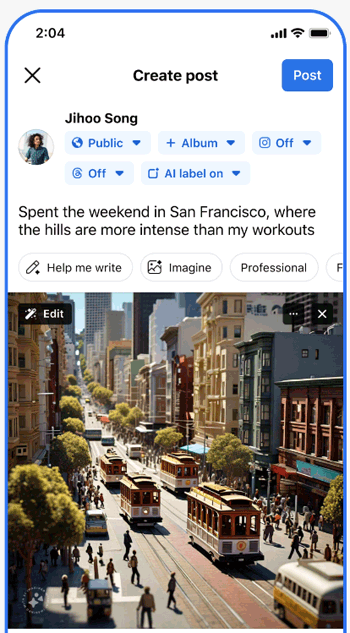
Meta AI In More Countries And Languages
Meta AI is now available in seven additional countries, bringing the total countries to to 22. It is also available in seven more languages.
List of Seven Additional Countries:
- Argentina
- Cameroon
- Chile
- Colombia
- Ecuador
- Mexico
- Peru
Meta AI is now also available in the following seven additional languages:
- French
- German
- Hindi
- Hindi-Romanized Script
- Italian
- Portuguese
- Spanish
Advanced Math And Coding
Meta AI is making their most advanced model, Llama 405B, available for users to take advantage of its advanced reasoning abilities that can answer complex answers and excells at math and coding.
Meta AI writes:
“You can get help on your math homework with step-by-step explanations and feedback, write code faster with debugging support and optimization suggestions, and master complex technical and scientific concepts with expert instruction.”
Read the official announcement:
Meta AI Is Now Multilingual, More Creative and Smarter
Featured Image by Shutterstock/QubixStudio
SEO
System Builders – How AI Changes The Work Of SEO

AI is terraforming tech. The content and SEO ecosystem is undergoing a massive structural change.
Human-written content gains value faster for LLM training than for end consumers as the pure profit licensing deals between LLM developers and publishers show.
Publishers struggle to survive from digital subscriptions but get millions that go straight to their bottom line for providing training data.
Content platforms, social networks, SaaS companies and consumer apps coat their products with AI. A few examples:
- Spotify DJ (AI-generated playlist).
- AI Overview (AI answers in Google Search).
- Instagram AI personas (celebrity AI chatbots).
- Ebay’s magical listing (turn a photo into a listing).
- Redfin Redesign (try interior designs on real house pictures).
The quality of machine-generated content (MGC) challenges human-generated content (HGC). I ran an experiment with my Twitter and LinkedIn followers: I asked them to choose which of two articles was written by a human and which by a machine – and they had to explain their answer.
Only a handful of people figured out that AI wrote both pieces. I intentionally framed the question in a leading way to see if people would challenge the setting or believe that one piece was written by a human if told so.
- Not an isolated experiment: A survey of 1,900 Americans found that 63.5% of people can’t distinguish between AI content and human content.1
- People seek help: Google search demand for [ai checker] has reached 100,000 in May 2024 (Glimpse).
- Dark side: scammers use MGC to make money, as 77% of AI scam victims lost money.2
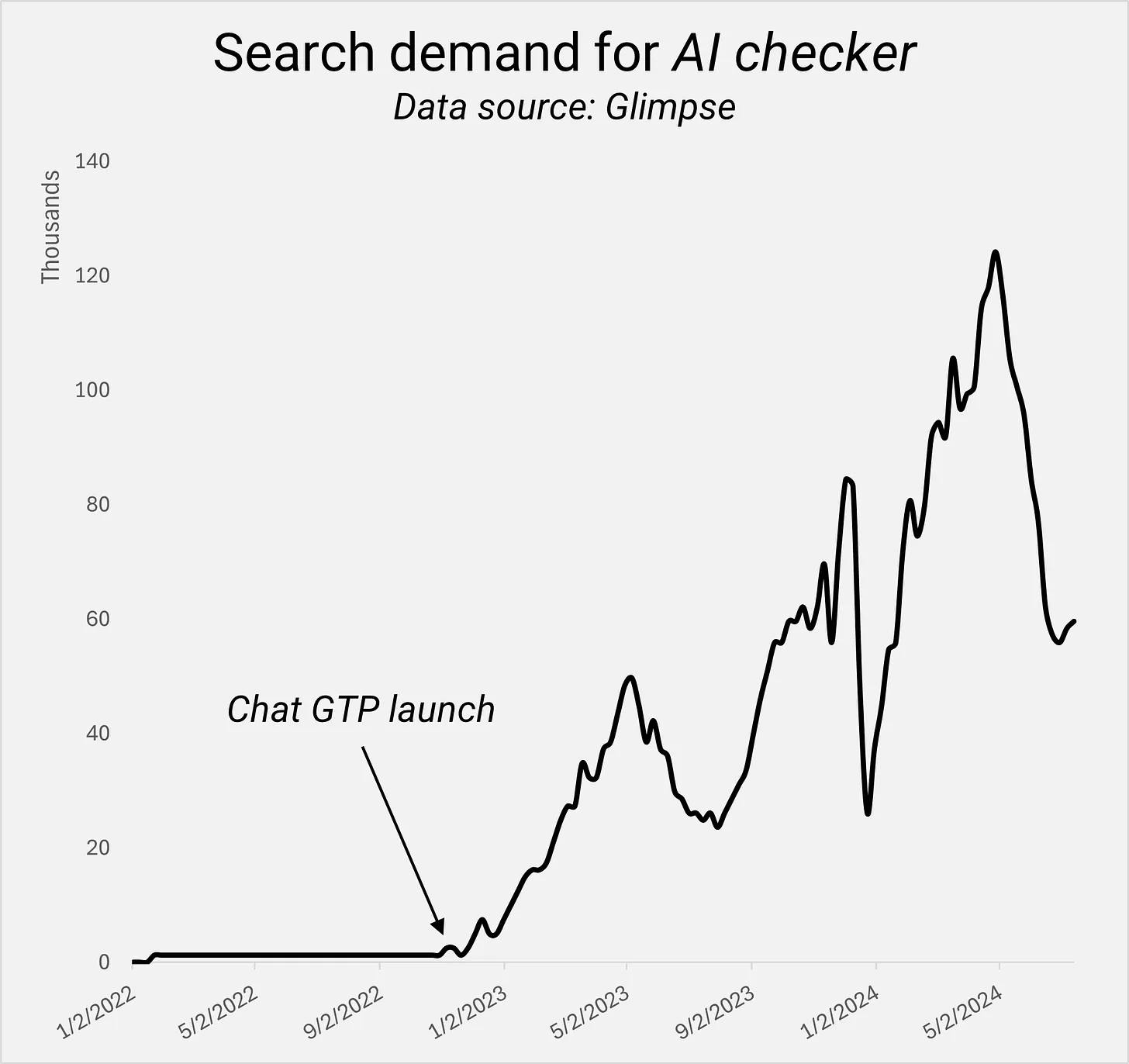 Image Credit: Kevin Indig
Image Credit: Kevin IndigThe quality level of LLMs pushes SEO work towards automating workflows and learning with AI, while writers will take content from good to great instead of zero to one.
Boost your skills with Growth Memo’s weekly expert insights. Subscribe for free!
 Image Credit: Lyna ™
Image Credit: Lyna ™System Builders
Clients, podcasters and panel hosts often ask me what skills SEOs need to build for the AI future. For a long time, my answer was to learn, stay open-minded and gain as much practical experience with AI as possible.
Now, my answer is SEOs should learn how to build AI agents and workflows that automate tasks. AI changes the way search works but also the way SEOs work.
AI + No-code Allows SEOs To Automate Workflows
A few examples:
1/ Cannibalization
- Old world: SEOs download search console data and create pivot tables to spot keyword cannibalization.
- New world: SEOs build an AI workflow that sends alters, identifies true keyword cannibalization, makes content suggestions to fix the problem, and monitors the improvement.
2/ Site Crawling
- Old world: SEOs crawl websites to find inefficiencies in internal linking, status code errors, duplicate content, etc.
- New world: SEOs build an AI agent that regularly crawls the site and automatically suggests new internal links that are shipped after human approval, fixes broken canonical tags and excludes soft 404 errors in the robots.txt.
3/ Content Creation
- Old world: SEOs do keyword research and write content briefs. Writers create the content.
- New world: SEOs automate keyword research with AI and create hundreds of relevant articles as a foundation for writers to build on.
All of this is already possible today with AI workflow tools like AirOps or Apify, which chain agents and LLMs together to scrape, analyze, transform data or create content.
Moving forward, we’ll spend much more time building automated systems instead of wasting time on point analyses and catalogs of recommendations. The SEO work will be defining logic, setting rules, prompting and coding.
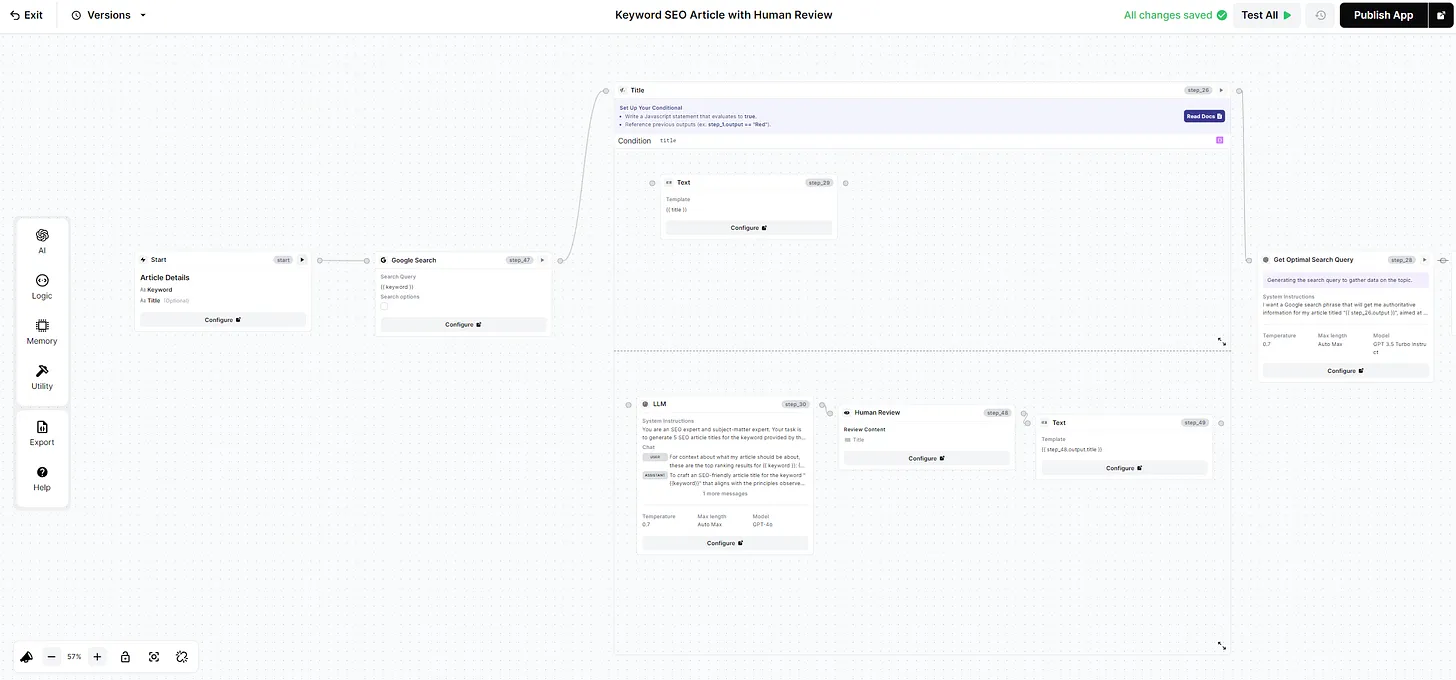 Building workflows with AirOps (Image Credit: Kevin Indig)
Building workflows with AirOps (Image Credit: Kevin Indig)You Can Learn (Almost) Anything With AI
I never made the time to really learn Python or R, but with the help of Chat GPT and Gemini in Colab, I can write any script with natural language prompts.
When the script doesn’t work, I can paste a screenshot into Chat GPT and describe the issue to get a solution. AI helps with Regex, Google Sheets/Excel, R, Python, etc. Nothing is off-limits.
Being able to write scripts can solve problems like data analysis, a/b testing and using APIs. As an SEO, I’m no longer dependent on engineers, data scientists or writers to perform certain tasks. I can act faster and on my own account.
I’m not the only one to figure this out. People are learning to code, write and many other skills with AI. We can learn to build AI workflows by asking AI to teach us.
 Image Credit: Kevin Indig
Image Credit: Kevin Indig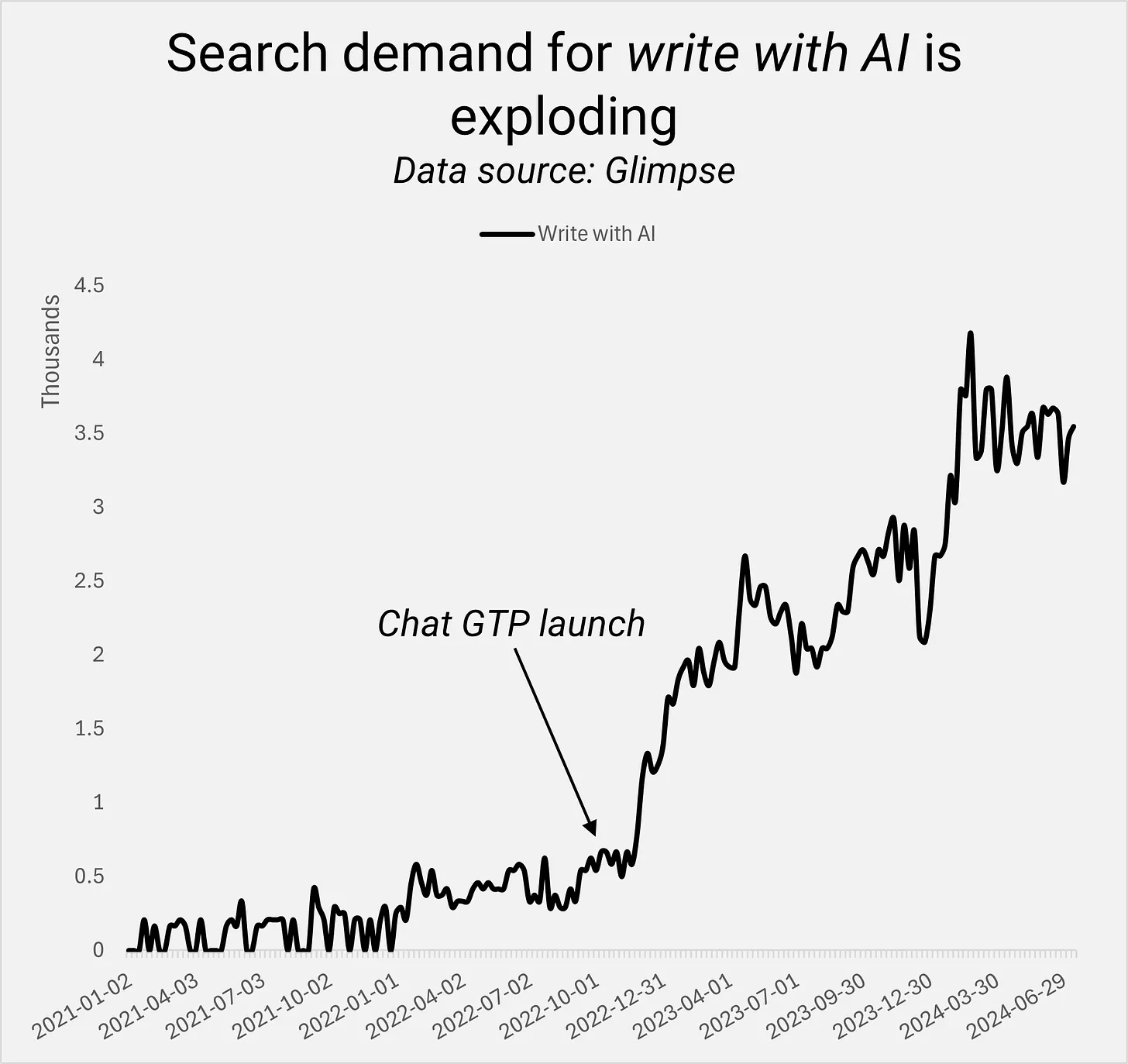 Image Credit: Kevin Indig
Image Credit: Kevin Indig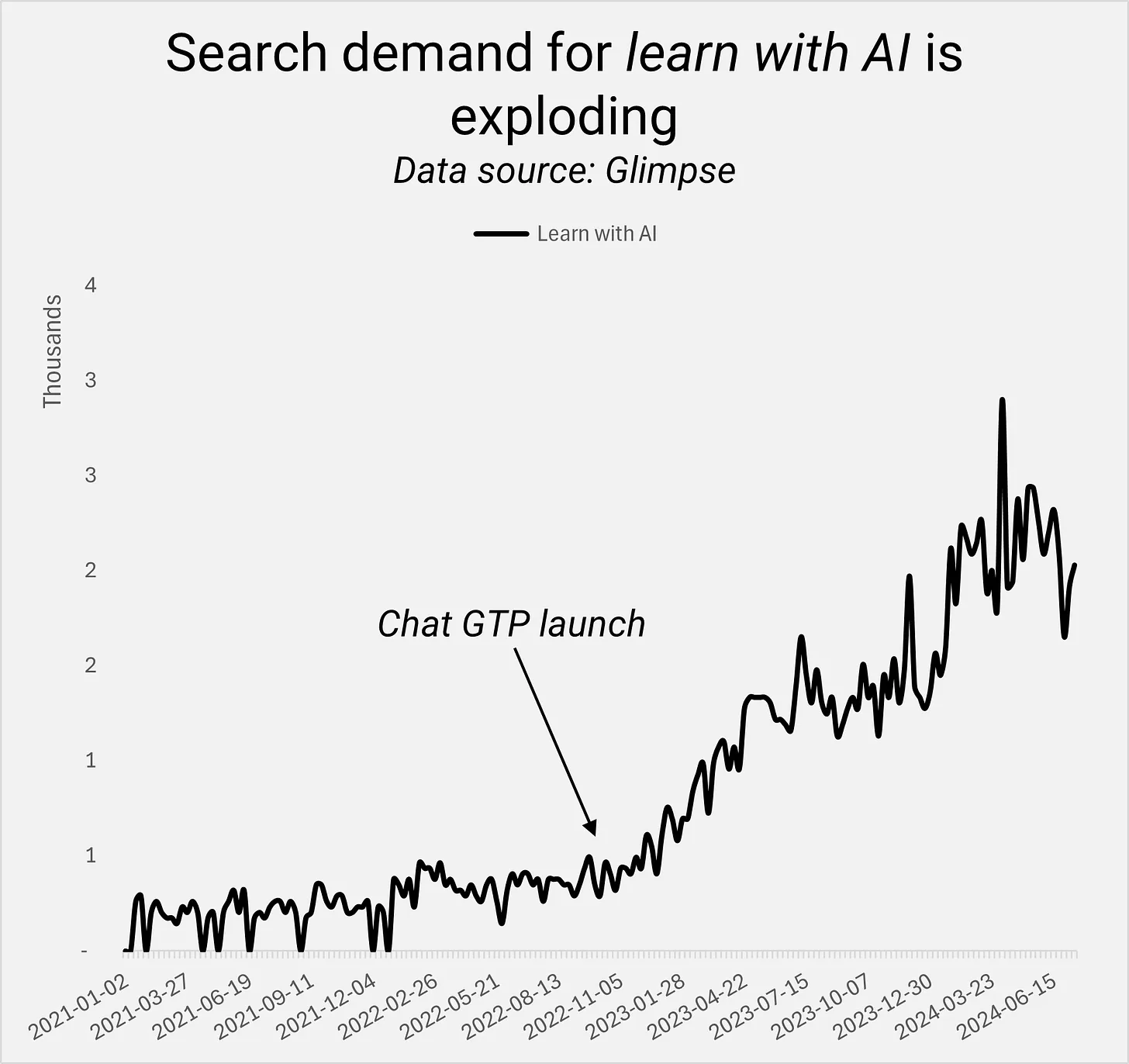 Image Credit: Kevin Indig
Image Credit: Kevin IndigWhen you can learn almost anything, the only limit is time.
The Work Of Writers Changes
Against common belief, writers won’t be crossed out of this equation but will play the critical role of editing, directing and curating.
In any automated process, humans QA the output. Think of car assembling lines. Even though AI content leaps in quality, spot checks reduce the risk of errors. Caught issues, such as wrong facts, weird phrasing or off-brand wording, will be critical feedback to fine-tune models to improve their output.
Instead of leg work like writing drafts, writers will bring AI content from good to great. In the concept of information gain, writers will spend most of their time making a piece outstanding.
The rising quality work spans from blog content to programmatic content, where writers will add curated content when searches have a desire for human experience, such as in travel.
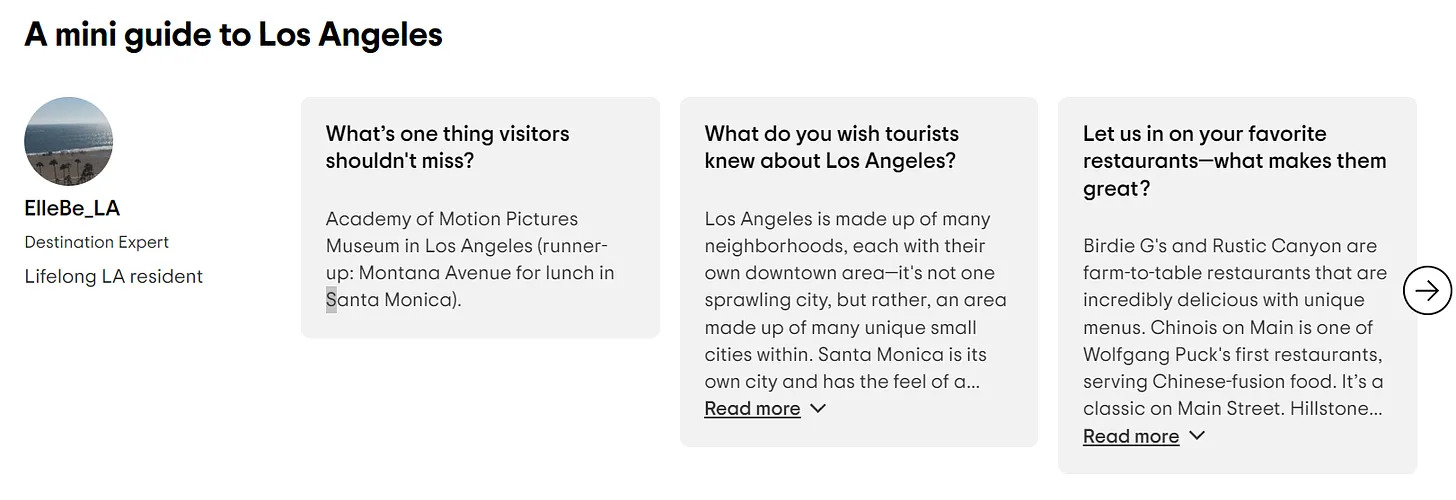 Tripadvisor’s attraction pages feature human-curated sections. (Image Credit: Kevin Indig)
Tripadvisor’s attraction pages feature human-curated sections. (Image Credit: Kevin Indig)Unfair Advantage
As often with new technology, a few first-mover people and companies get exponential value until the rest catch up. My worry is that a few fast-moving companies will grab massive land with AI.
And yet, this jump in progress will allow newcomers to challenge incumbents and get a fair chance to compete on the field.
AI might be a bigger game changer for SEOs than for Google. The raw power of AI might help us overcome challenges from AI Overviews and machine learning-driven algorithm updates.
But the biggest win might be that SEOs can finally make something instead of delivering recommendations. The whole value contribution of SEOs changes because my output can drive results faster.
Survey: ChatGPT and AI Content – Can people tell the difference?
Artificial Intelligence Voice Scams on the Rise with 1 in 4 Adults Impacted
Featured Image: Paulo Bobita/Search Engine Journal
SEO
12 SEO Meetups You Should Have On Your Radar
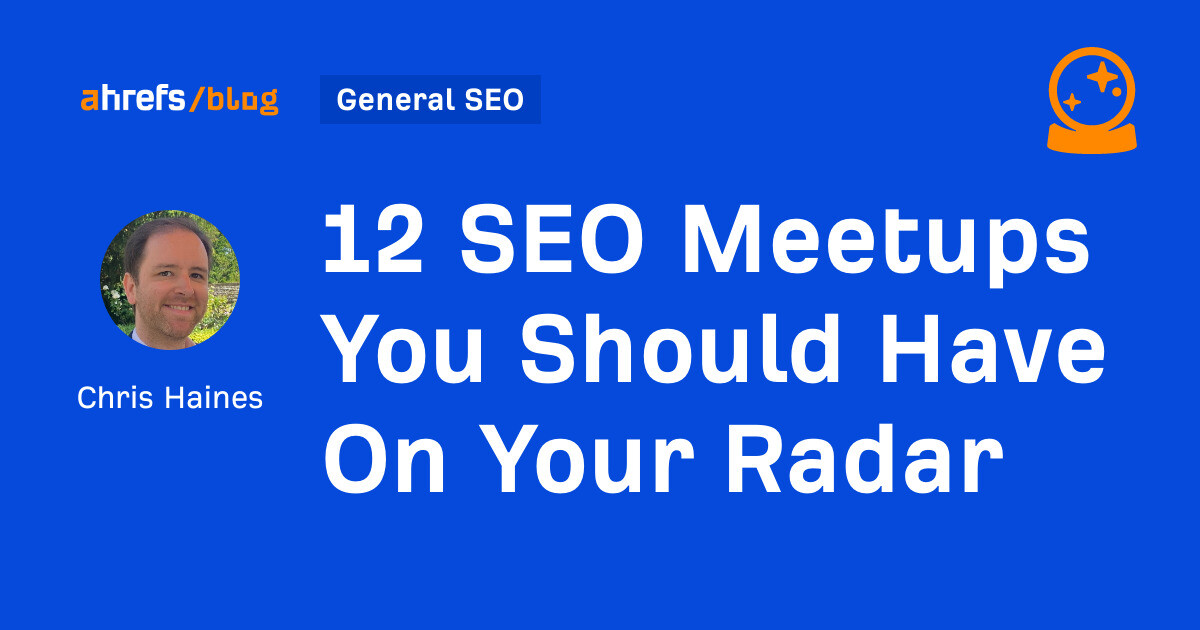
Want to meet other people interested in SEO offline? Give an SEO meetup a go.
In my experience, it’s one of the best ways to meet like-minded people and provides a more relaxed, informal setting than a bustling SEO conference. Who knows—you could make new friends at a meetup or even land new SEO clients.
But with so many events worldwide, it’s impossible to mention them all. So, here are some of the most talked-about SEO meet-ups I think you should have on your radar.
Okay—so I may be a little biased, but I wanted to start by sharing our Ahrefs’ SEO Events. We’ve run five Beer and Snacks Meetups in Singapore. We’ve also hosted an SEO Workshop and Networking meetup the day before BrightonSEO, and we just launched our London Meetup.
Tickets to the London Meetup sold out in a day and a half—it was our fastest-selling ticketed event ever.
Tim Soulo, Joshua Hardwick, and Ryan Law will speak at our inaugural event, covering topics such as improving your rankings, competitor research, and content marketing. To stay informed about our next event, follow our events page.
Sidenote.
Missed our meetups but still want to catch up with the Ahrefs team and a host of world-class speakers? Get Ahrefs Evolve tickets ✨


The LondonSEO Meetup hosts an evening of networking with industry peers and leading experts featuring SEO speakers like Itamar Blauer, Steph Hugman, Reina Hanada, and many more.
The bigger XL event has even hosted prolific search engine news chronicler Barry Schwartz in 2023.
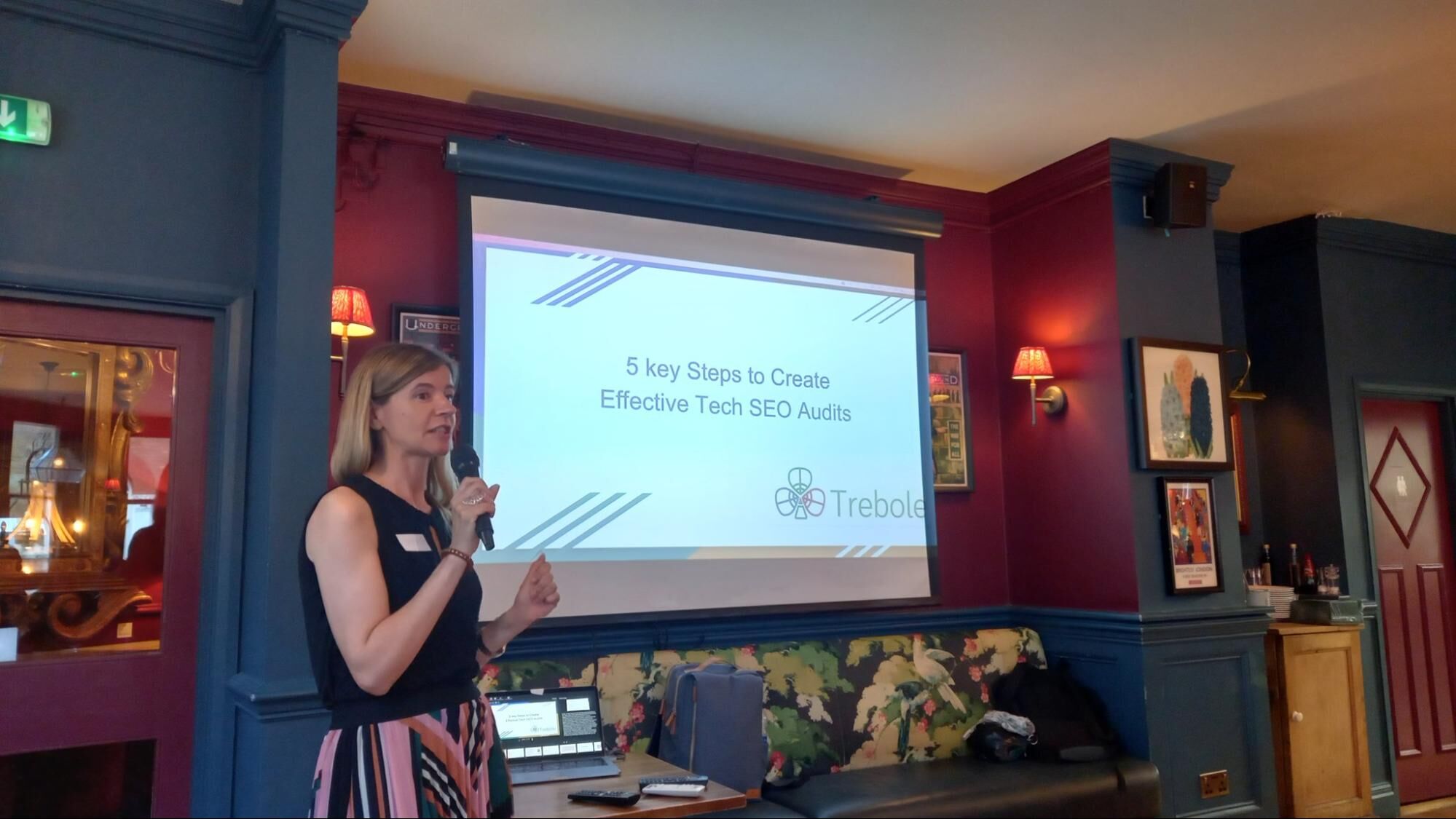

With over 2,800 members, Search London is a popular meetup that has been around for over a decade.
Events are organized every 8-12 weeks, and members are from a mixture of agency, client-side, and start-up businesses.
The meet-up is open to anyone in SEO, PPC, or social media—and offers marketing professionals and first-time speakers a safe, supportive space to share their industry knowledge and experiences.
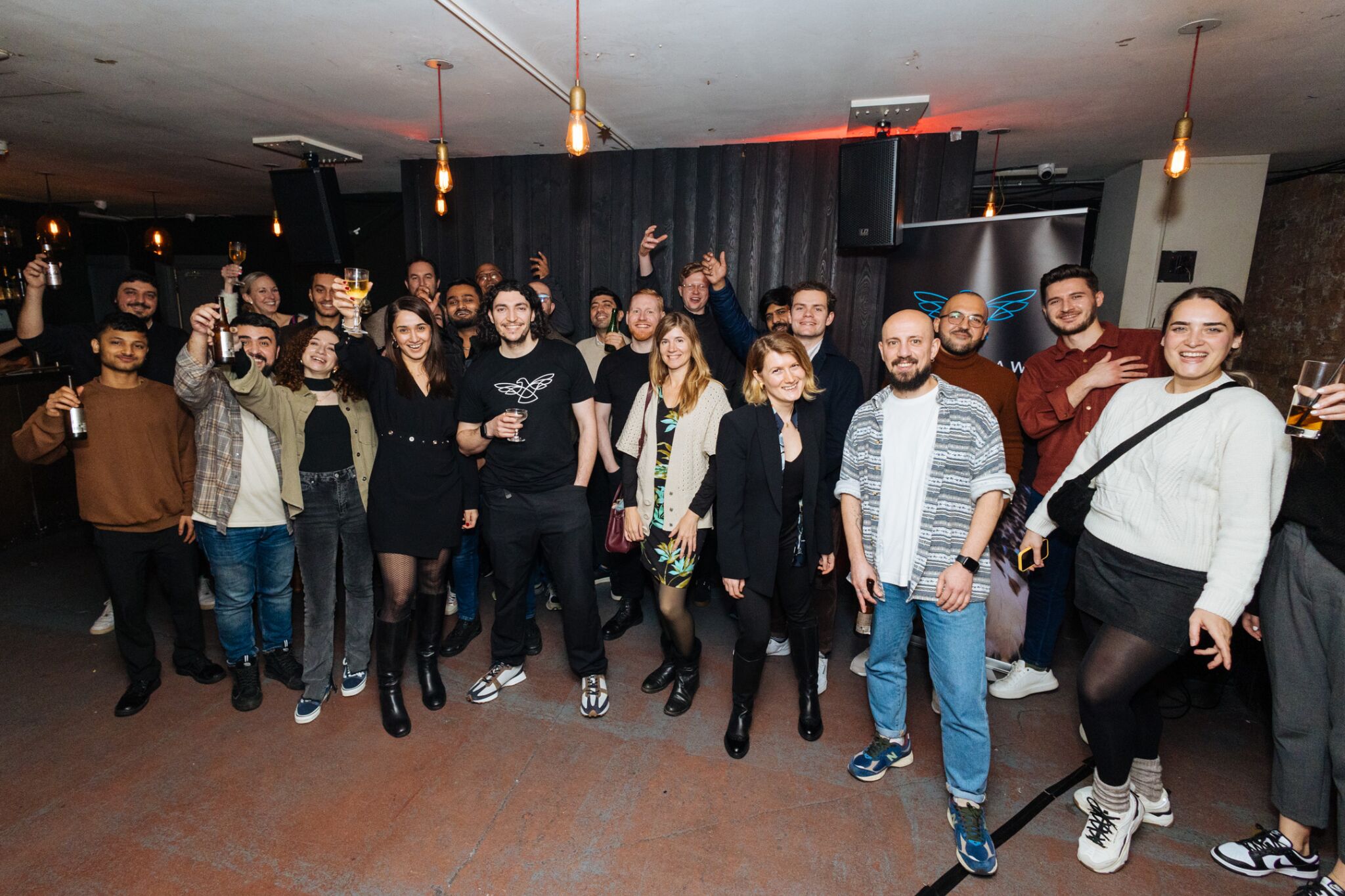

Search ‘n Stuff meetups are an energetic and all-embracing community tailored to empower digital marketers, startups, in-house teams, and professionals. Expect sharings centered on strategies, campaigns, and other relevant SEO topics.
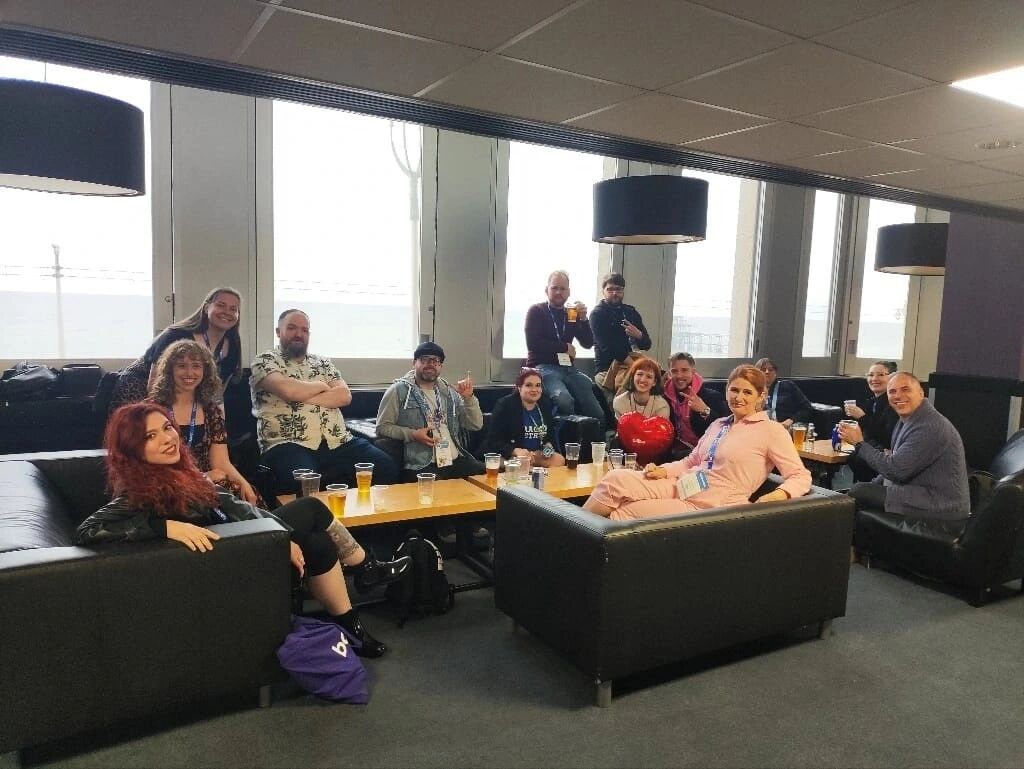

Neurodivergents in SEO provide a safe space for neurodivergent SEOs to network and learn.
The group holds in-person meetups at BrightonSEO, both in the UK and the US, and monthly pub quizzes with great prizes.
If you’re an SEO or marketer and identify as neurodivergent, you’re more than welcome to join the community. You can do so by signing up here.
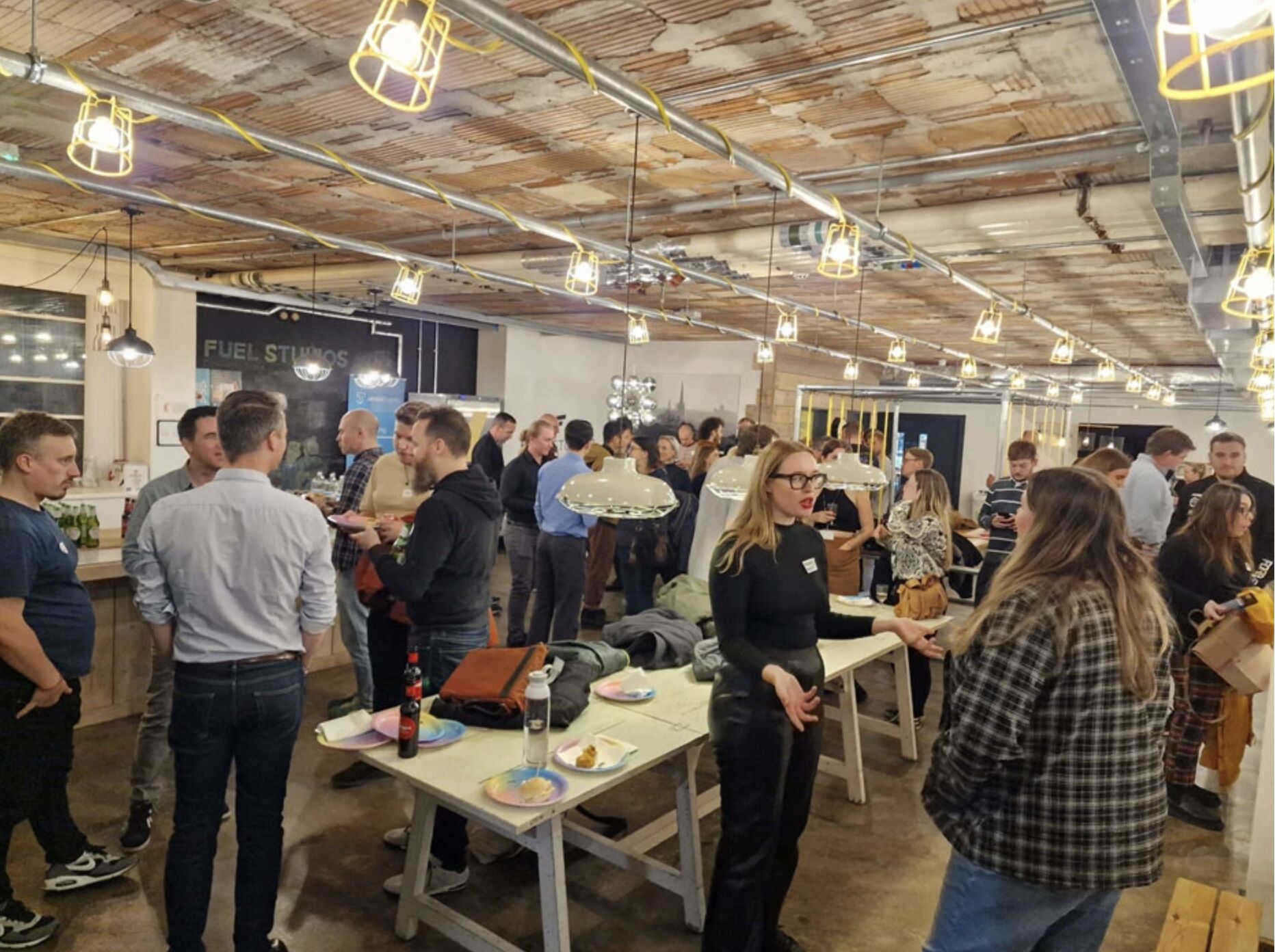

Search Norwich launched in 2018 as a free marketing meetup event. It often features top industry speakers who share their knowledge, tips, and advice with the search marketing community. At Search Norwich there are no sales agendas, fluff, or pitches—just valuable insights.
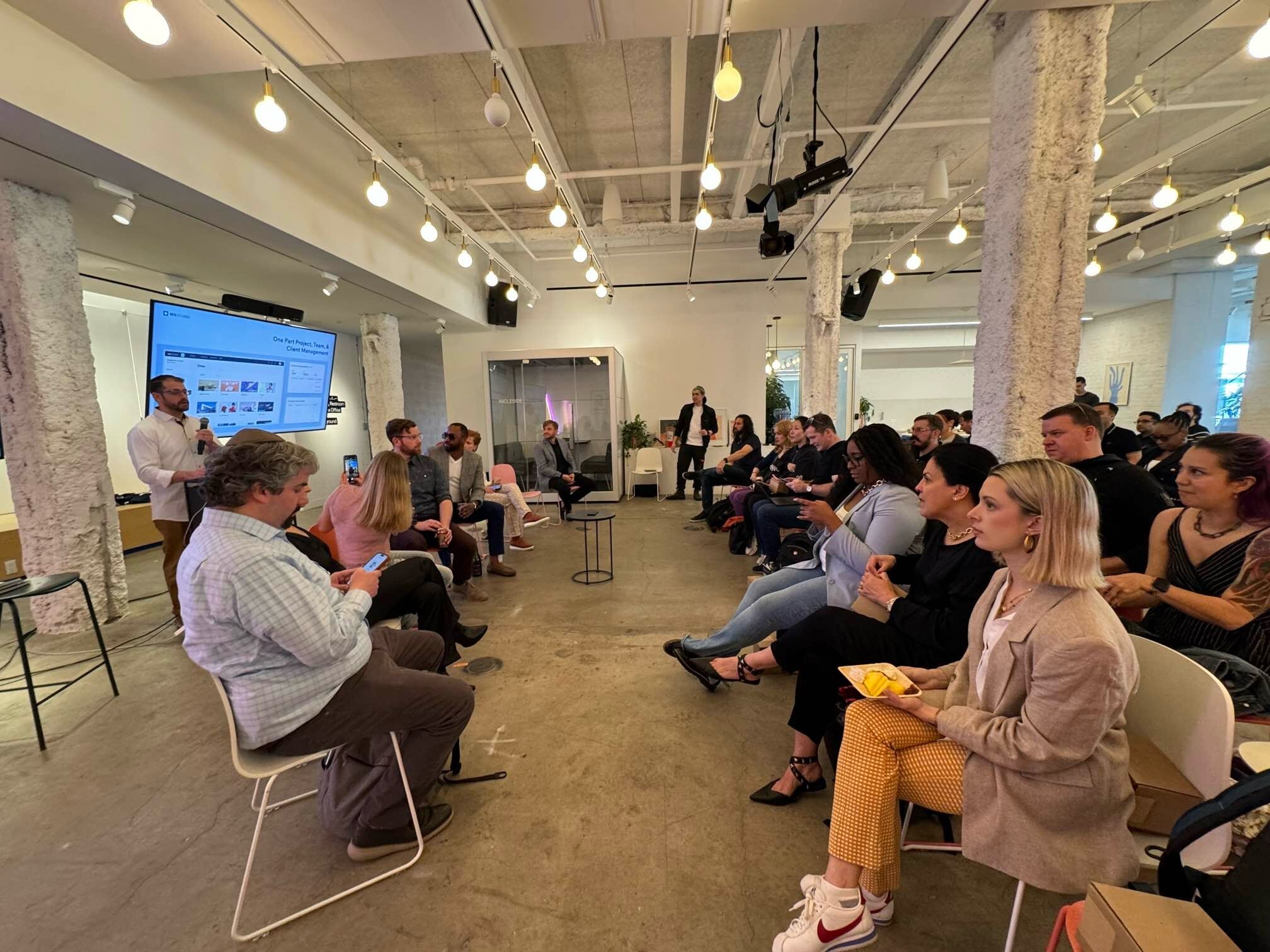

The SEOFOMO meetups are run by SEO superstar Aleyda Solis, who is a well-known SEO speaker and founder of SEO consultancy Orainti. She’ll also be the headline speaker for our first Ahrefs Evolve Conference.
SEOFOMO is a laid-back, free event perfect for learning, connecting, and sharing with other SEOs.
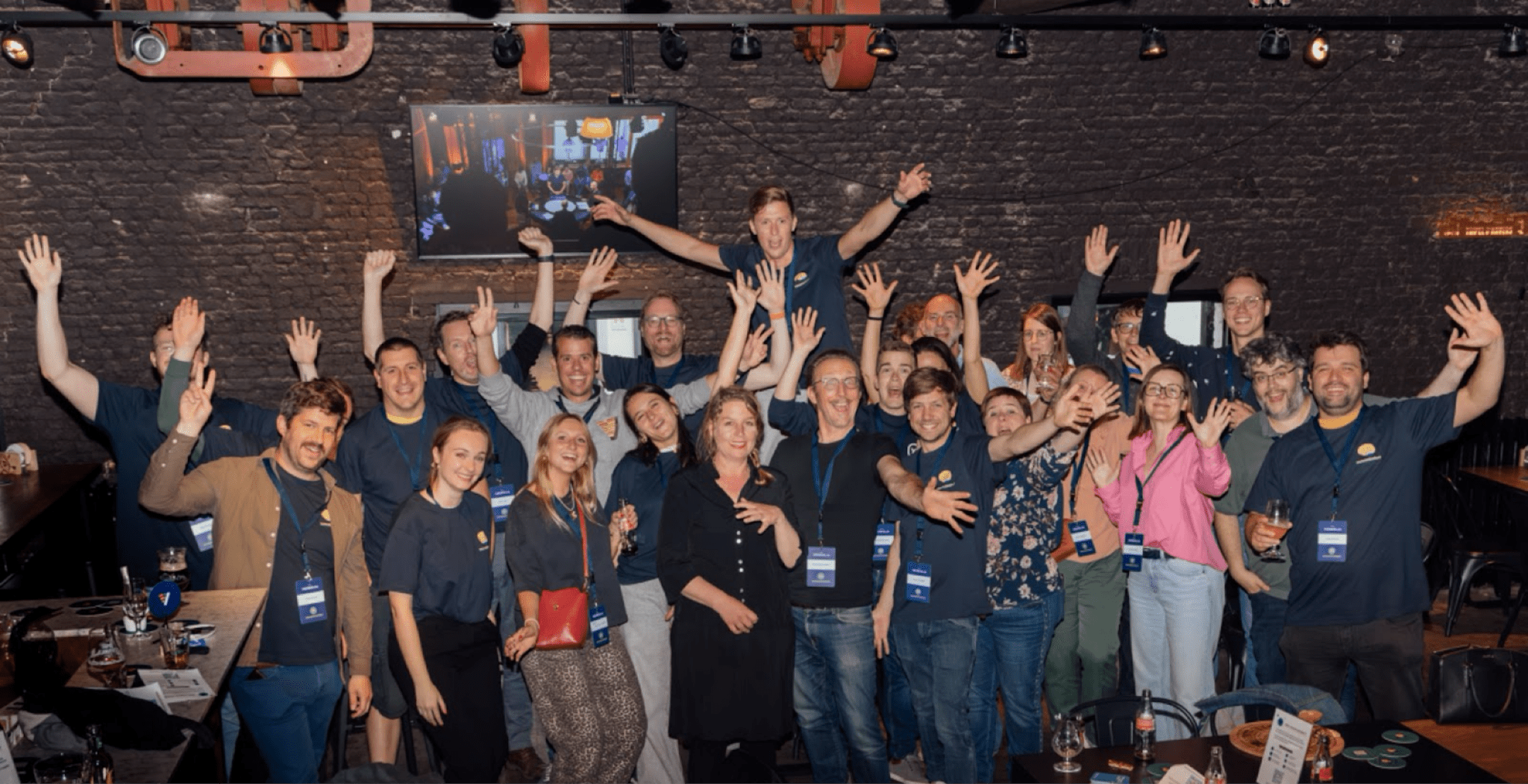

SEO Mastermind is a supportive, free, and friendly SEO community where you can grow your skills, meet like-minded people, and get answers to all your organic marketing questions.
SEO Mastermind meets around eight times a year, mainly in the Netherlands and Belgium—but they also occasionally have meetups in other locations, for instance, at Brighton SEO and ISS Barcelona.
Organizer Jeroen Stikkelorum told me that SEO Mastermind is on a mission to build the most valuable Dutch-spoken SEO and organic marketing community in The Netherlands and Belgium. So if you’re local, give it a go.
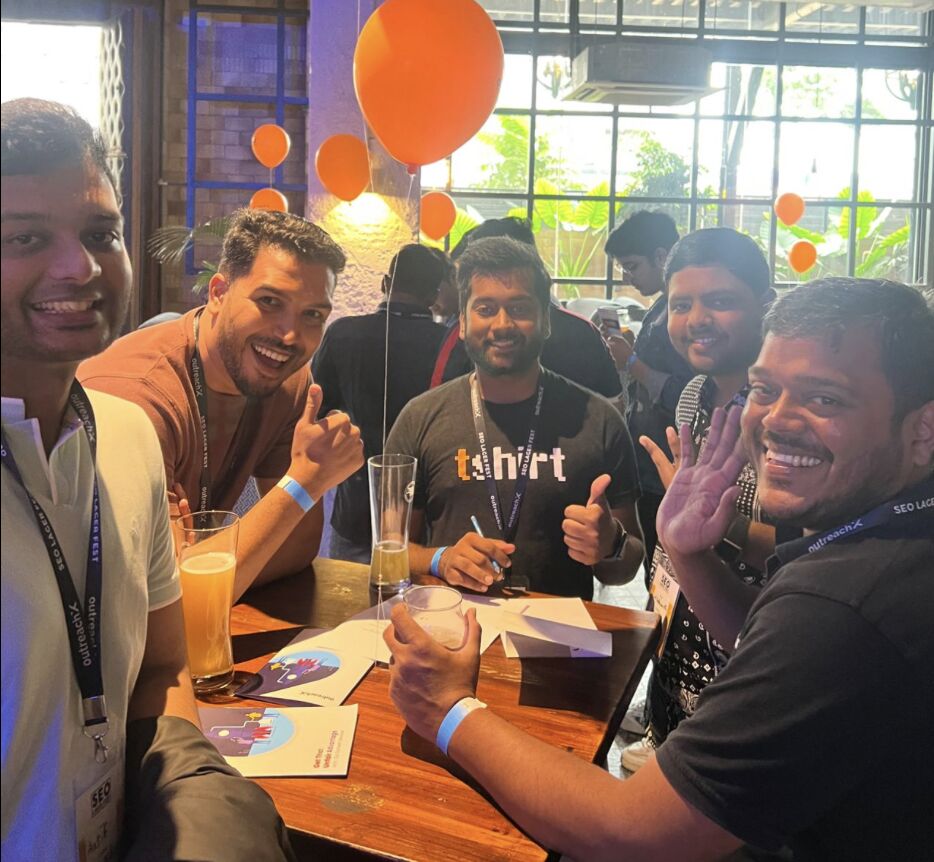

SEO Lager Fest is a fun SEO meetup that (apart from drinking) enables you to network with like-minded folks in the SEO industry. They hold an SEO quiz, run case study competitions, do AMAs, and even do SEO charades.
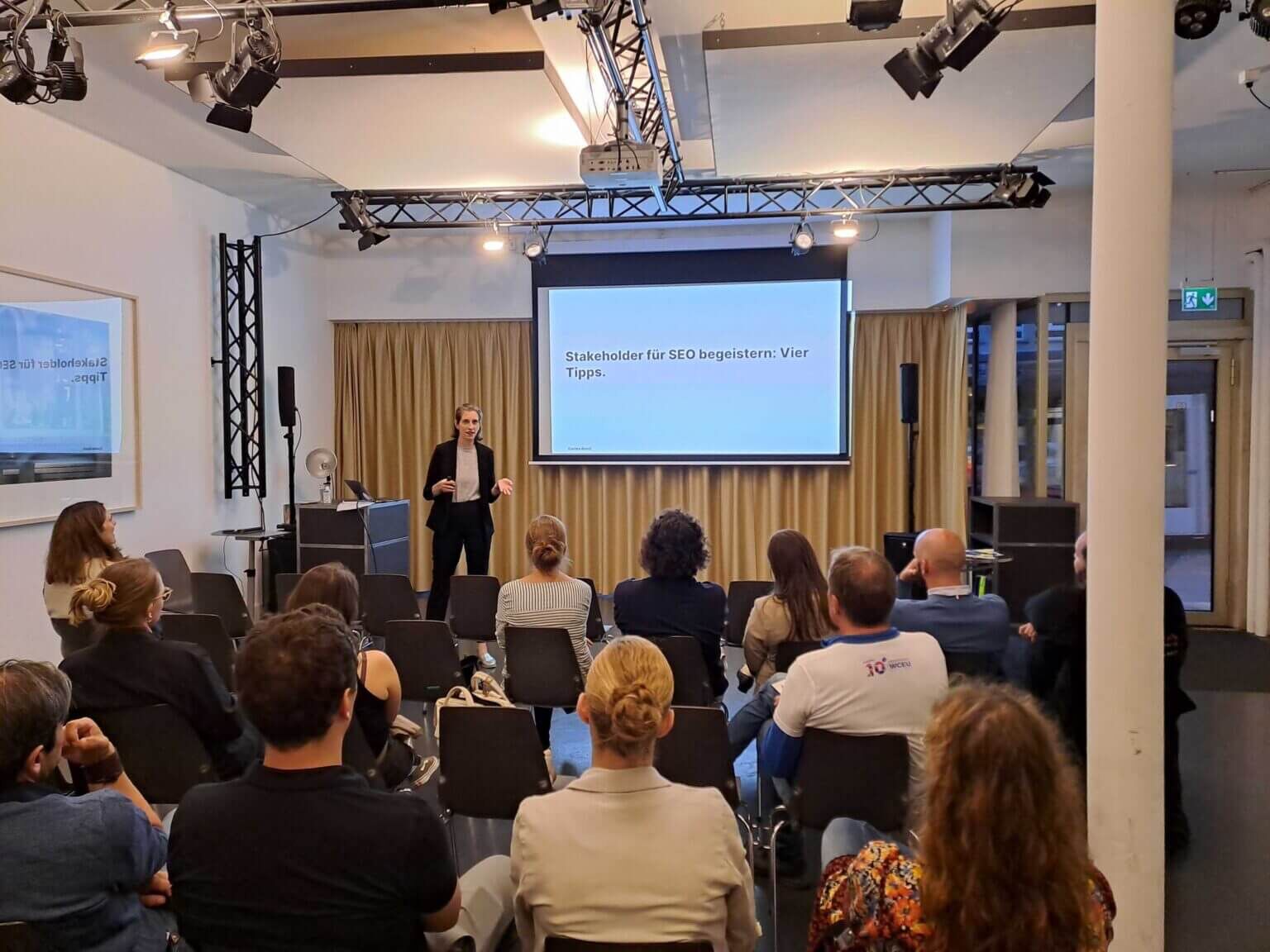

SEOnerdSwitzerland is a volunteer-run association that organizes events for SEOs in Switzerland and beyond.
Dedicated to fair opportunities and diversity, they provide training and coaching for people wanting to break through as a public speaker in the SEO industry.
SEOnerdSwitzerland also offers training and coaching for speakers, aiming for a diverse and inclusive panel.
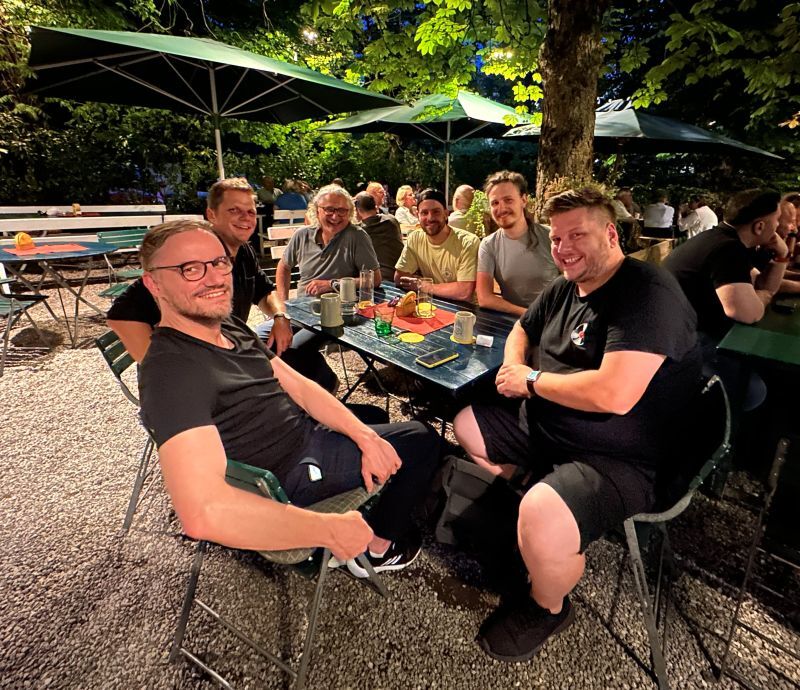

WebSchrona is a free monthly meetup for SEO and online marketing professionals in Salzburg, Austria. They meet every second Thursday at 6 p.m.
There’s no fixed agenda, so discussions are often unplanned and spontaneous and often involve a drink of some description.
Organizer Alexander Außermayr tells me that everyone is welcome to join their SEO meetups. The aim is to provide a regular, uncomplicated meetup in an open space—often a beer garden, if the weather is good.
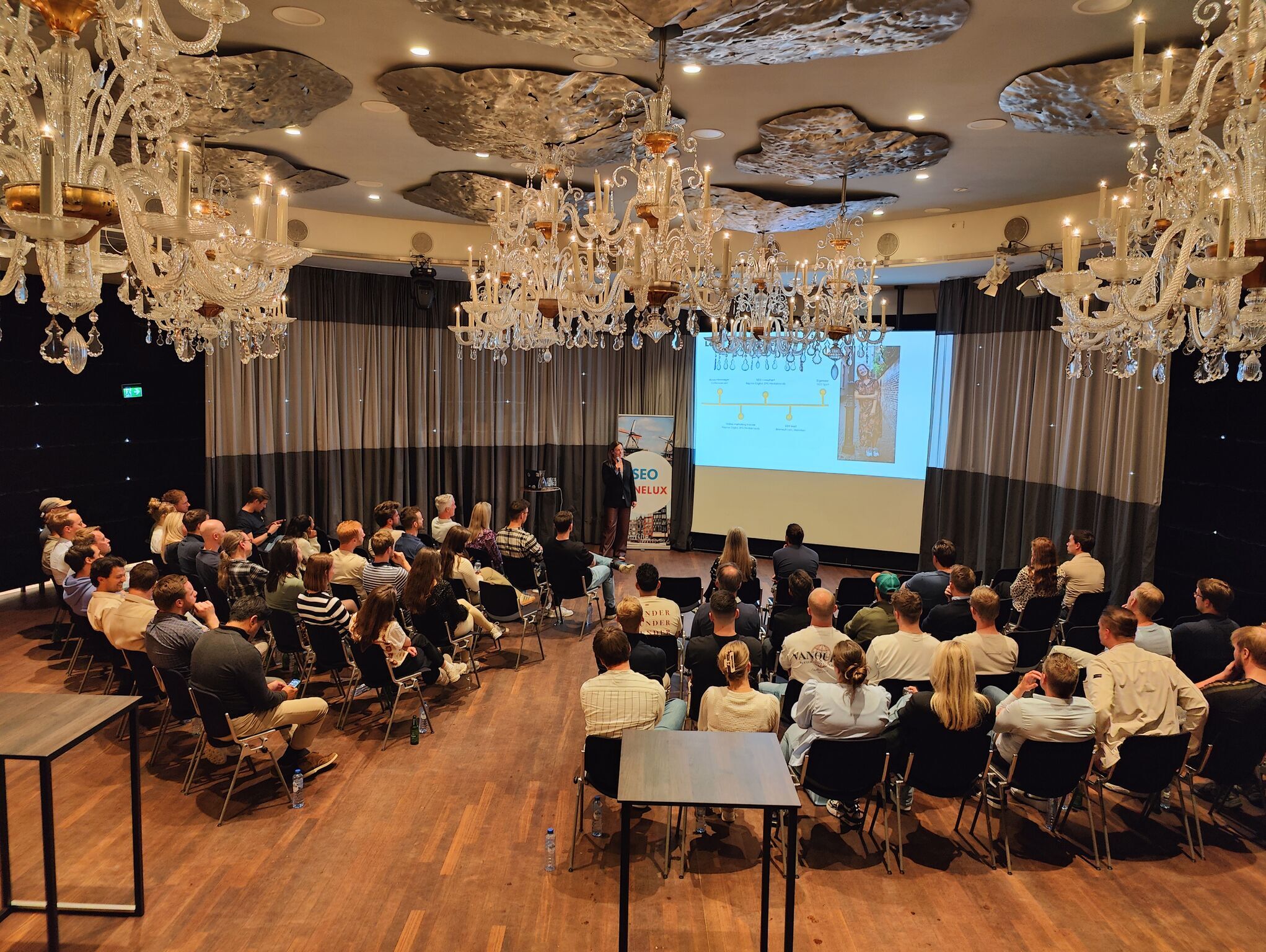

SEO Benelux started in 2018 as a Facebook community for Dutch and Belgian SEO specialists. The meetup grew into the largest in the Benelux region, with more than 3,000 members.
There are four meetups each year, two in Belgium (Ghent and Antwerp) and one in the Netherlands (mostly Amsterdam). Each meetup attracts 70–90 people and features three speakers.
If you don’t live in a big city, it may be difficult to find a good meetup, but that doesn’t mean there aren’t any in your local area.
Here are my tips to help you find new meetups near you.
Tip 1 – Use Google’s advanced search operators to uncover new meetups
As new meetups pop up all the time and often without notice, it’s worth doing some digging to see what’s out there.
You can just do a regular ol’ Google search, but we’re SEOs—so let’s use some advanced search operators and spice it up a bit.
In this example, I searched for the phrase “meetup” in the title, plus my location and my favorite SEO tool, and it managed to uncover Tim’s tweet on our London Meetup.
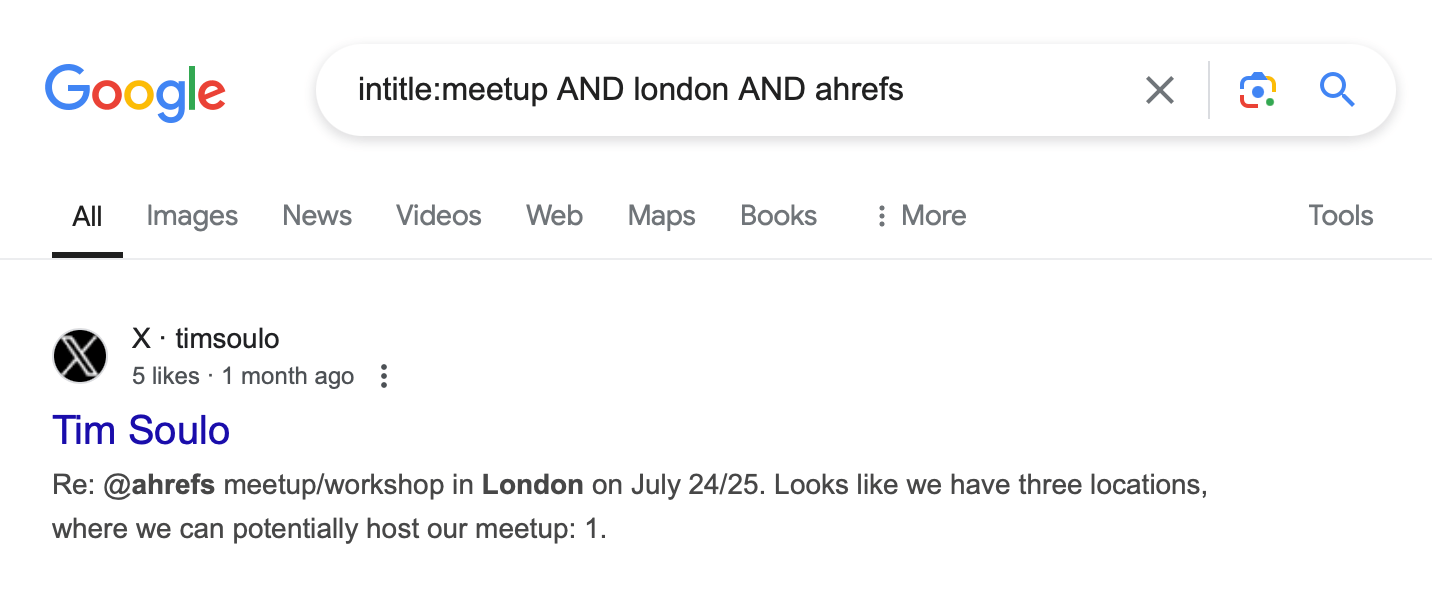

This is just a very basic example, and you could use any website or location, but it shows how you can uncover information about new meetups with a little research.
Tip 2 – Trigger the Events SERP feature
By searching for events or events near me, you can trigger the Events SERP feature. In the example below, I found a few SEO-related events by prepending “SEO” to the search.
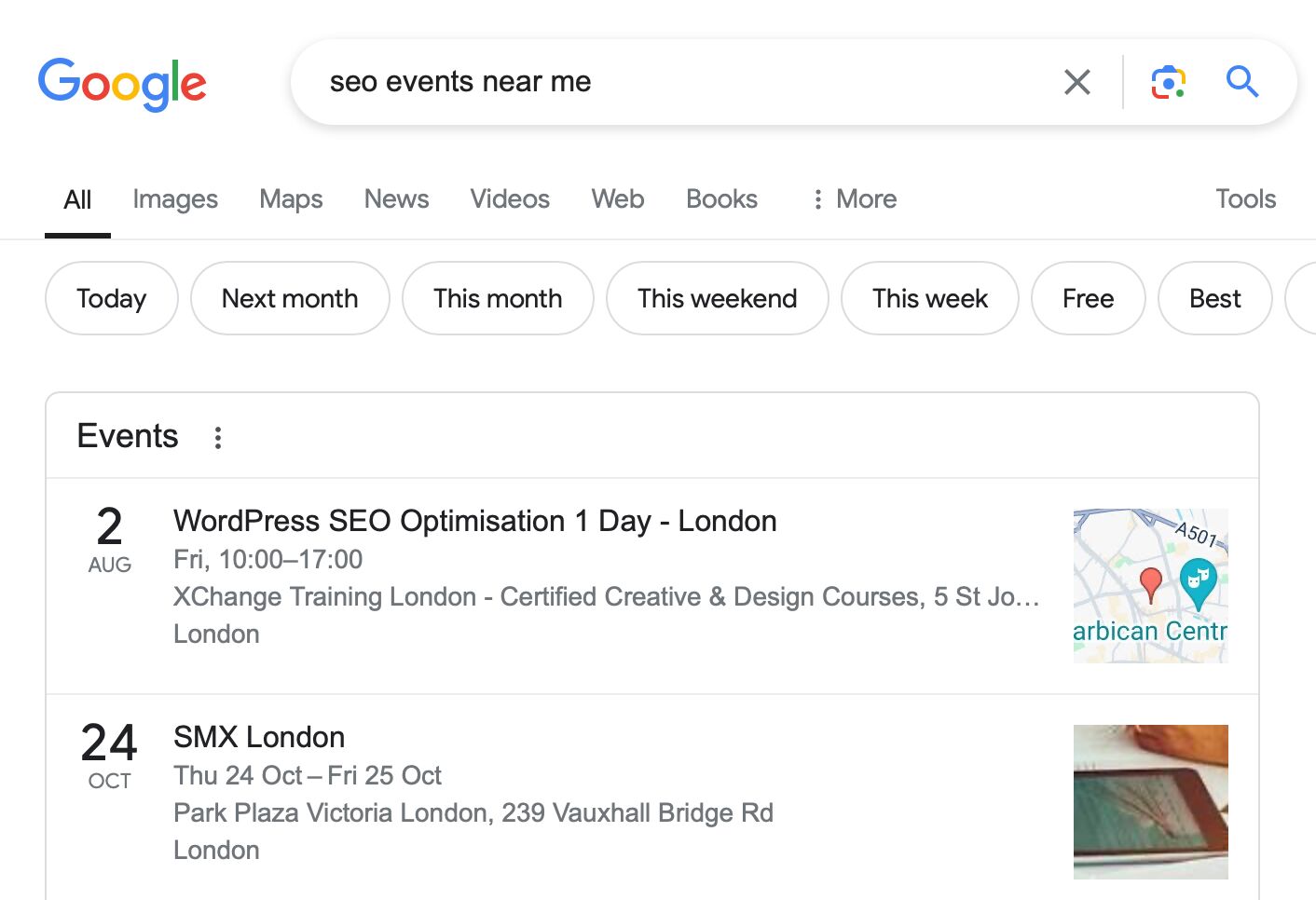

Once you’ve triggered the feature, scroll down until you find an SEO meetup that catches your eye.
Tip 3 – Use Meetup to find an SEO meetup
If you can’t find anything on Google then it’s a good idea to run a quick check on a specialist community platform.
One of the most popular platforms is Meetup. It allows you to find events near your location on any topic.
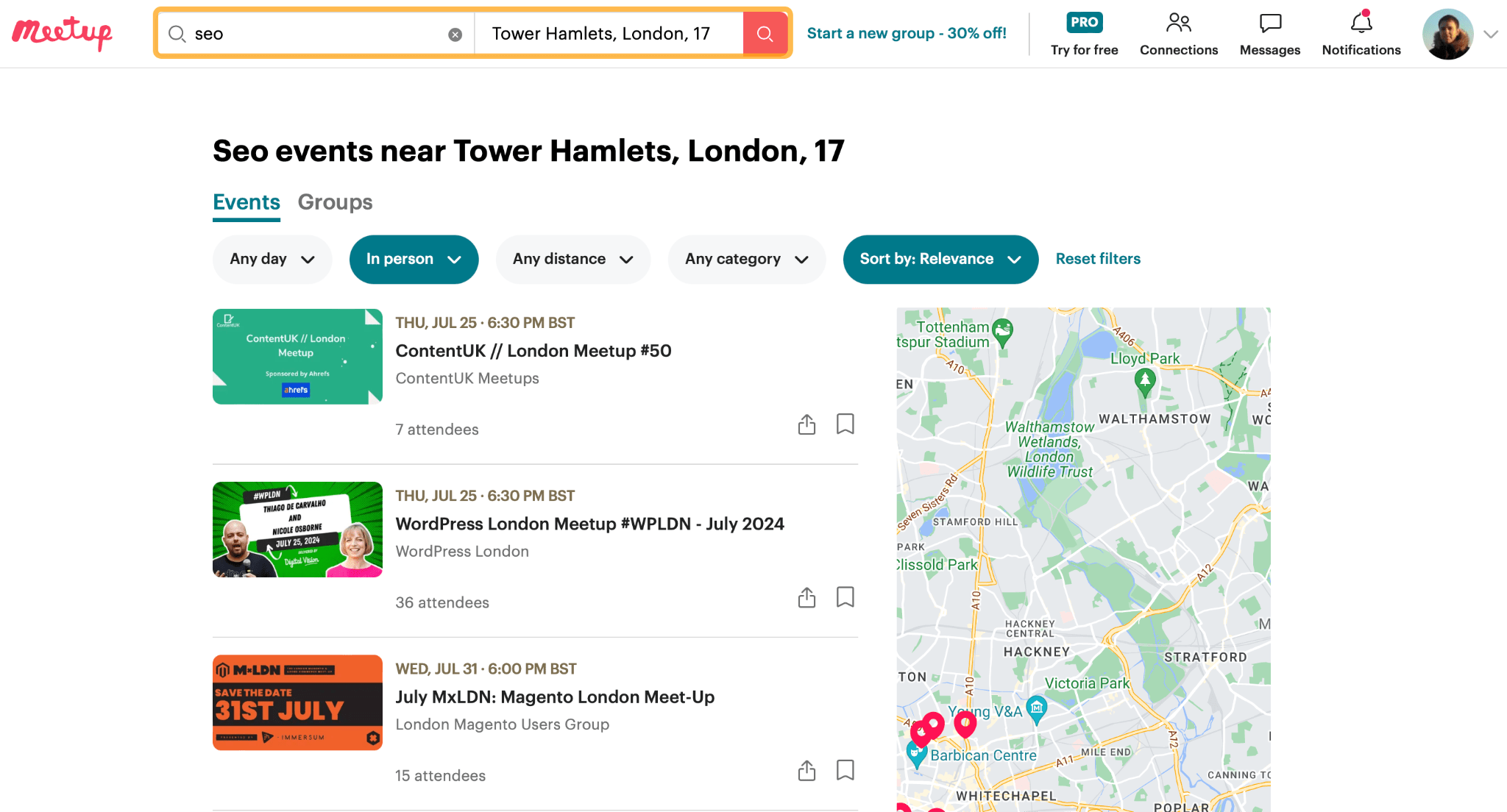

Over the years, I’ve attended a lot of smaller meetups through this website, and they have always been interesting and a place to make new connections.
Tip 4 – No SEO meetup in your area? Start your own!
I started my own mini-meetup in 2018 on WhatsApp with some former colleagues, imaginatively titled #seodrinks.
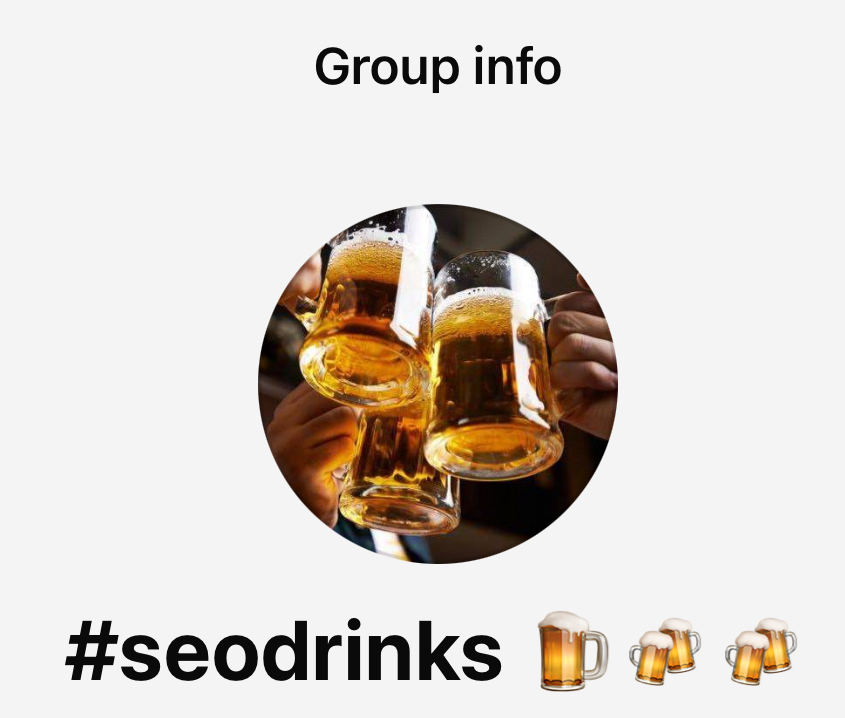

It started from humble beginnings in a room in a small pub in London, and it’s still in a room in a small pub—somewhere in London. (If you want an invite, let me know on LinkedIn.)
We only have semi-regular meetups in London and a small group, but every meetup has to start somewhere.
If you want to start your own SEO meetup, platforms like WhatsApp and Telegram are the best free places to start, but if you want a more specialized paid option, you could try Meetup or another similar platform.
Final thoughts
You don’t always have to attend a big SEO conference to meet other amazing people in the industry. Some of the smaller meetups I’ve been to have resulted in making more contacts than the bigger conferences.
As such, SEO meet-ups are one of my favorite ways to meet people who are just as interested in SEO and marketing as much as you are.
Did I miss an SEO meetup? Add your SEO meetup here, or let me know on LinkedIn.
-
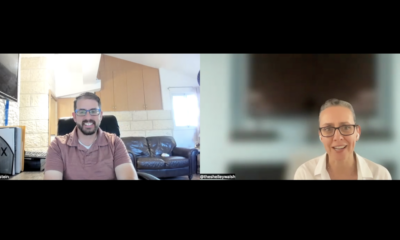
 SEO6 days ago
SEO6 days agoWhat SEO Should Know About Brand Marketing With Mordy Oberstein
-
SEARCHENGINES7 days ago
Daily Search Forum Recap: July 18, 2024
-

 AFFILIATE MARKETING6 days ago
AFFILIATE MARKETING6 days agoWhy Taylor Swift Believes in Her Lucky Number
-
SEARCHENGINES5 days ago
Daily Search Forum Recap: July 19, 2024
-
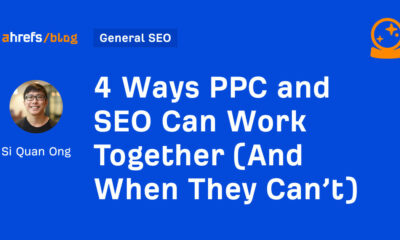
 SEO7 days ago
SEO7 days ago4 Ways PPC and SEO Can Work Together (And When They Can’t)
-
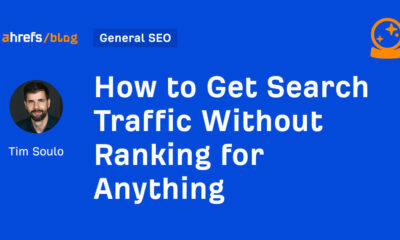
 SEO6 days ago
SEO6 days agoHow to Get Search Traffic Without Ranking for Anything
-
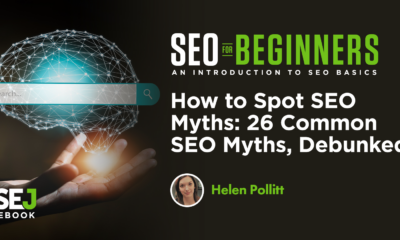
 SEO5 days ago
SEO5 days ago26 Common SEO Myths, Debunked
-

 SEARCHENGINES3 days ago
SEARCHENGINES3 days agoBillions Of Google goo.gl URLs To 404 In The Future








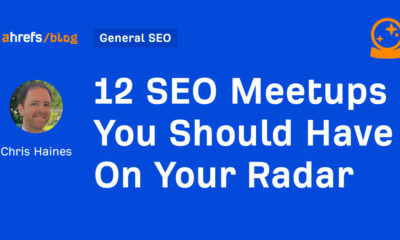

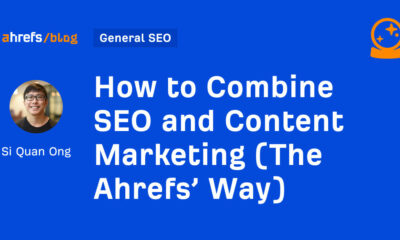





You must be logged in to post a comment Login